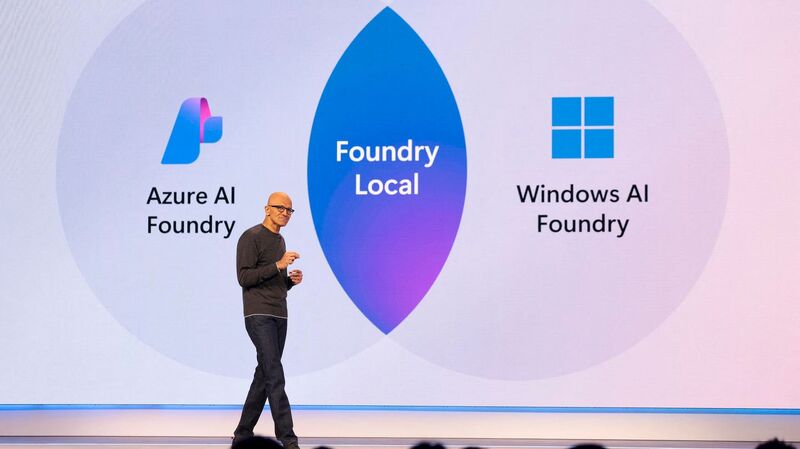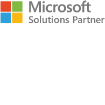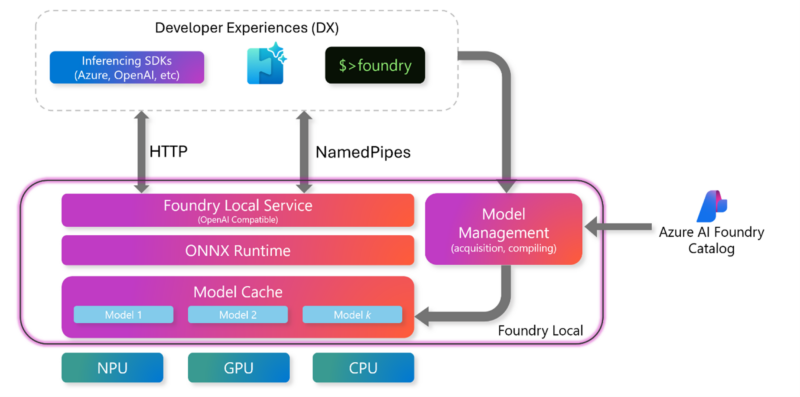On May 19, 2025, Microsoft Foundry Local was launched in public preview. It enables you to run AI models directly on Windows and macOS devices. This eliminates cloud dependencies while maximizing performance, privacy, and control over sensitive data.

What Is Foundry Local?
Foundry Local is Microsoft’s new local AI platform that brings the advanced capabilities of Azure AI Foundry directly to your desktop or on-premises server. Whether you’re a developer or part of an enterprise team, Foundry Local helps you build fast, secure, and intelligent apps—without needing to connect to the cloud.
Key Features:
- Run AI Models Right on Your Device: Foundry Local lets you run models directly on your laptop or desktop, keeping everything on your own hardware.
- Use Ready-Made Models or Bring Your Own: You can choose from prebuilt AI models or upload your own, depending on what your project needs.
- Save Money by Using What You Already Have: Since Foundry Local runs on your existing devices, you avoid ongoing cloud service fees.
- Easy to Connect with Your Apps: Foundry Local works smoothly with your tools using a command-line interface (CLI), software development kit (SDK), or REST API. And if your needs grow, you can scale up to Azure AI Foundry in the cloud.
- Works on Windows and macOS: Whether you are on a PC or a Mac, you can build and run your AI apps across both platforms.
- Especially great for Testing: You can Foundry Local for testing your AI models locally, and when you are ready, move them to the cloud for broader deployment.
How It Works (Architecture)
- Foundry Local Service runs on your device and provides an OpenAI-compatible API, allowing your apps to send requests, run models, and receive results—all locally.
- ONNX Runtime is the engine that executes AI models efficiently on your hardware, whether it is a CPU, GPU, or NPU, and supports a wide range of devices from vendors like Intel, AMD, NVIDIA, and Apple.
- Model Cache stores downloaded models on your device so they’re always ready to use without needing to re-download them, which speeds up inference.
- CLI and SDK Access let developers manage models and run inference using simple commands or integrate Foundry Local directly into their applications.
- Hardware Abstraction ensures Foundry Local automatically selects the best available hardware for each task, delivering fast and optimized performance across platforms.
Availability: Public Preview
Public preview is an early-access phase where the product is available to the public but is not yet considered fully production-ready. For Foundry Local, this means:
- You can download and use it now on Windows or macOS.
- It is functionally usable, but some features may still be evolving or limited.
- Microsoft may change APIs, behaviors, or capabilities before the General Availability (GA) release.
- However, it is not yet intended for distributed or containerized production deployments.
The general availability release is yet to be announced.
Licensing & Cost
- Foundry Local itself is free to install and use.
- However, model usage may incur costs, depending on the specific model you choose to run. Some models are open-source and free, others may require a license.
- You do not need an Azure subscription to use Foundry Local—it runs entirely on your local machine.
How to Check If an Agent Incurs Cost
You can use the Foundry command-line interface (CLI) to inspect the agent or model:
foundry agent info background-remover --licenseThis will show you the licensing terms and whether any usage restrictions or fees apply.
Installation & Quickstart
To install Foundry Local:
Windows:
winget install Microsoft.FoundryLocalmacOS:
brew tap microsoft/foundrylocal
brew install foundrylocalTo run your first model:
foundry model run phi-3.5-mini
How to Pay for Licensed Models or Agents in Foundry Local
As of now, Foundry Local itself is free, but licensed models or agents may require a separate agreement or license key.
1. License Acceptance via CLI
When you install or run a model or agent, Foundry Local may prompt you to accept a license. This is often done through the CLI:
foundry model info <model-name> --licenseIf the model requires payment, the license terms will specify how to proceed—this might include a link to a Microsoft or third-party licensing portal.
2. Microsoft Marketplace or Partner Licensing
For commercial models, Microsoft may route licensing through:
- Azure Marketplace
- Third-party vendors
- Direct Microsoft licensing agreements
In these cases, you may be asked to:
- Purchase a license key
- Subscribe to a usage plan
- Agree to terms for commercial deployment
3. No Azure Subscription Required
Even if the model is from Azure AI Foundry, you don’t need an Azure subscription to run it locally. But if the model is licensed, you will still need to pay the model owner, not necessarily Microsoft.
More information
- Learn about the integration of Foundry Local in Windows AI Foundry: https://blogs.windows.com/windowsdeveloper/2025/05/19/advancing-windows-for-ai-development-new-platform-capabilities-and-tools-introduced-at-build-2025/.
- Learn about Foundry Local architecture: https://learn.microsoft.com/en-us/azure/ai-foundry/foundry-local/concepts/foundry-local-architecture.
Need Help with Licensing?
To ensure compliance and optimize your AI licensing strategy, contact our licensing experts at SCHNEIDER IT MANAGEMENT.



